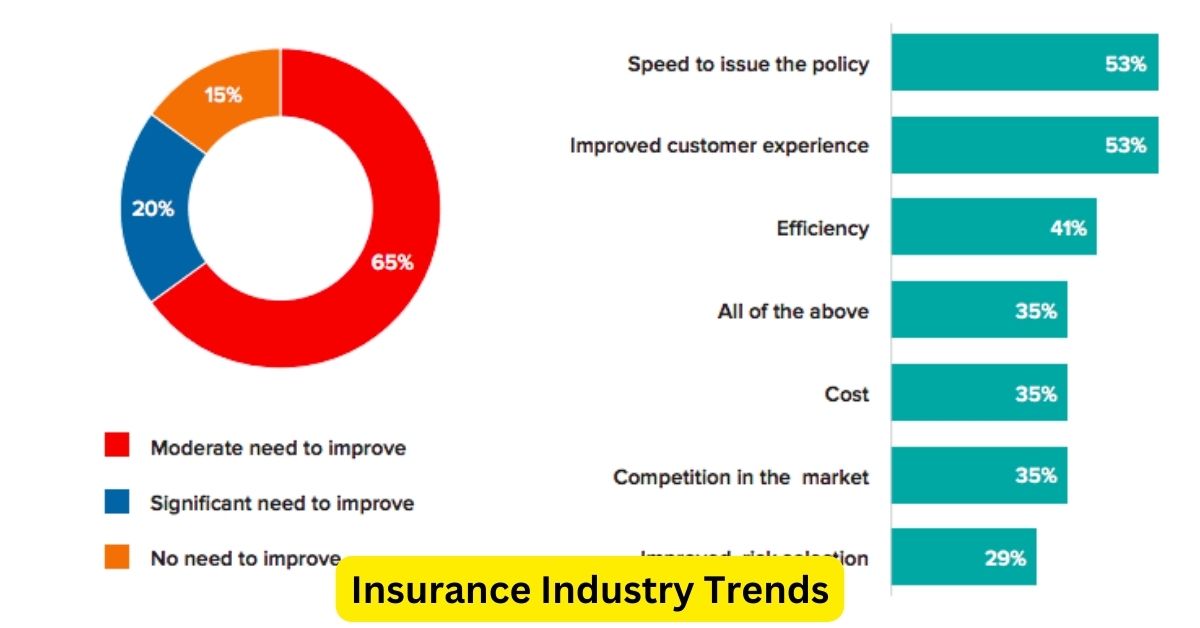Key Trends Shaping the Insurance Industry in 2024
The insurance industry is evolving rapidly in 2024, driven by technological advancements, changing consumer expectations, and new regulatory frameworks. As companies navigate these shifts, several key trends are emerging that are reshaping the landscape of insurance across all sectors.
1. Digital Transformation and AI Integration
One of the most significant trends in the insurance industry is the increasing use of artificial intelligence (AI) and digital technologies. Insurers are leveraging AI to streamline operations, enhance customer experiences, and improve risk assessment. For instance, AI-powered chatbots and virtual assistants are becoming commonplace, providing 24/7 customer service and handling claims processing efficiently.
Moreover, machine learning algorithms analyze vast amounts of data to predict customer behavior, personalize policies, and detect fraudulent activities. Insurtech startups are at the forefront of this digital revolution, challenging traditional insurers to innovate or risk being left behind. As a result, we are witnessing a surge in collaborations between established insurance companies and tech firms to drive digital transformation.
2. Usage-Based Insurance (UBI) Models
Usage-based insurance (UBI) models are gaining traction, particularly in auto and health insurance. With the advent of telematics and IoT devices, insurers can offer personalized premiums based on actual usage and behavior. For auto insurance, telematics devices monitor driving habits, allowing insurers to reward safe drivers with lower premiums. Similarly, in health insurance, wearable devices track physical activity and vital signs, encouraging healthier lifestyles and offering policyholders incentives for maintaining wellness.
This shift towards UBI reflects a broader trend of personalization in insurance, where customers seek tailored coverage that aligns with their specific needs and lifestyles. Insurers adopting UBI models are not only enhancing customer satisfaction but also improving risk management and pricing accuracy.
3. Sustainability and ESG Considerations
Environmental, Social, and Governance (ESG) considerations are increasingly influencing the insurance industry. Insurers are recognizing the importance of sustainability and integrating ESG criteria into their underwriting and investment decisions. Climate change, in particular, poses significant risks to the industry, with rising natural disasters leading to increased claims and financial losses.
To mitigate these risks, insurers are developing products that promote sustainability, such as coverage for renewable energy projects and incentives for environmentally friendly practices. Furthermore, regulatory bodies worldwide are imposing stricter ESG reporting requirements, pushing insurers to adopt sustainable business practices and transparent reporting.
4. Cyber Insurance Expansion
As cyber threats become more sophisticated, the demand for cyber insurance is surging. Businesses across all sectors are seeking protection against data breaches, ransomware attacks, and other cyber incidents. Insurers are responding by expanding their cyber insurance offerings and enhancing coverage options to address evolving threats.
Cyber insurance is no longer limited to large corporations; small and medium-sized enterprises are also recognizing its importance. As digitalization continues to expand, cyber insurance will play a crucial role in managing risks associated with online activities and data protection.
Conclusion
In 2024, the insurance industry is at a pivotal juncture, with digital transformation, personalization, sustainability, and cyber risk management at the forefront of its evolution. Insurers that embrace these trends and adapt to changing market dynamics will be well-positioned to thrive in the years ahead, delivering value to customers and stakeholders alike. As the landscape continues to evolve, staying informed about these trends will be essential for industry players looking to maintain a competitive edge.

